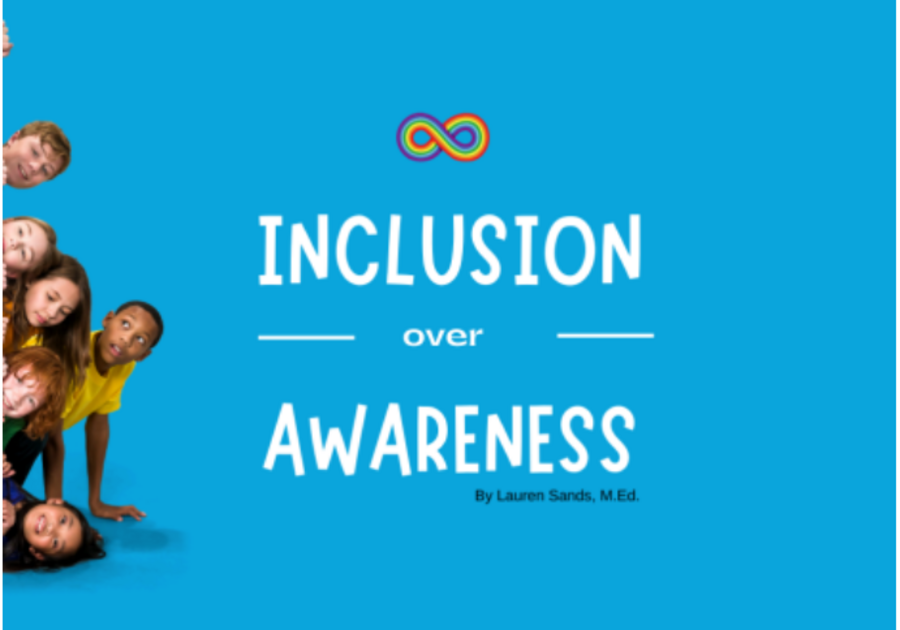Every April, social media is filled with puzzle pieces, blue lightbulbs, and well-meaning hashtags. Schools hand out blue t-shirts, cities light up marquis signs, and everyone proclaims they're "raising awareness."
While awareness has come a long way, autistic people—and our families—deserve more than visibility. We deserve to be understood, included, and celebrated.
Awareness without action can feel hollow. It's not enough to say "I see you" if the systems still silence us, exclude us, or only make room when we mask who we are.
So here's what I'm asking this Autism Awareness Month:
Don't just be aware—be affirming.
Understand that autism is a neurotype, not a problem to fix. It's a different way of thinking, sensing, and engaging with the world.
Celebrate stimming (this looks like hand flapping or spinning, but it can also look like tapping a pencil excessively or shaking your leg non-stop). Respect AAC (Augmentative and Alternative Communication) and acknowledge the teen who speaks in move scripts, repeating the same phrases over and over. Toss the therapy goals that chase "normal" and replace them with goals that chase joy and regulation.
Push for true inclusion.
Inclusion isn't putting us in the room—it’s making sure we’re heard, supported, and allowed to show up as ourselves.
Inclusion in the classroom looks like: visual schedules, timers, flexible seating, avoiding LED lighting and providing natural light, noise cancelling headphones, sensory breaks, social-emotional learning, modified scissors, adaptive writing utensils. At The Sands Academy, we built a whole school around that idea. Because no child should have to earn the right to belong.
But inclusion doesn’t stop at school.
It means turning off the blaring music in restaurants. Writing clearer instructions at work. Hiring neurodivergent people because of, not in spite of, their minds.
Inclusion is a mindset. And it’s everyone's responsibility.
Listen to autistic voices.
We are the experts on our own experience. That includes kids, non-speakers, and those who need higher support. If you want to know what autistic people need—ask us—actively amplifying our voices, not just those who speak for us.
Change starts in your corner of the world.
Whether you're a parent, teacher, neighbor, or friend, your impact is powerful. You don't have to be a policymaker to make a difference. Choose language that affirms. Create spaces that
accommodate. Model acceptance for your kids. Choose inclusive books, toys, and stories. Advocate even when it’s uncomfortable.
Change doesn’t happen in conference halls or campaigns.
It starts in homes, classrooms, break rooms, playgrounds, and community spaces.
This month, don’t stop at awareness. Let’s move toward a world where every autistic person is seen and supported. Not just this month, but all year long.
Let’s rewrite the script—and make neurodivergence not just known, but embraced- together.


